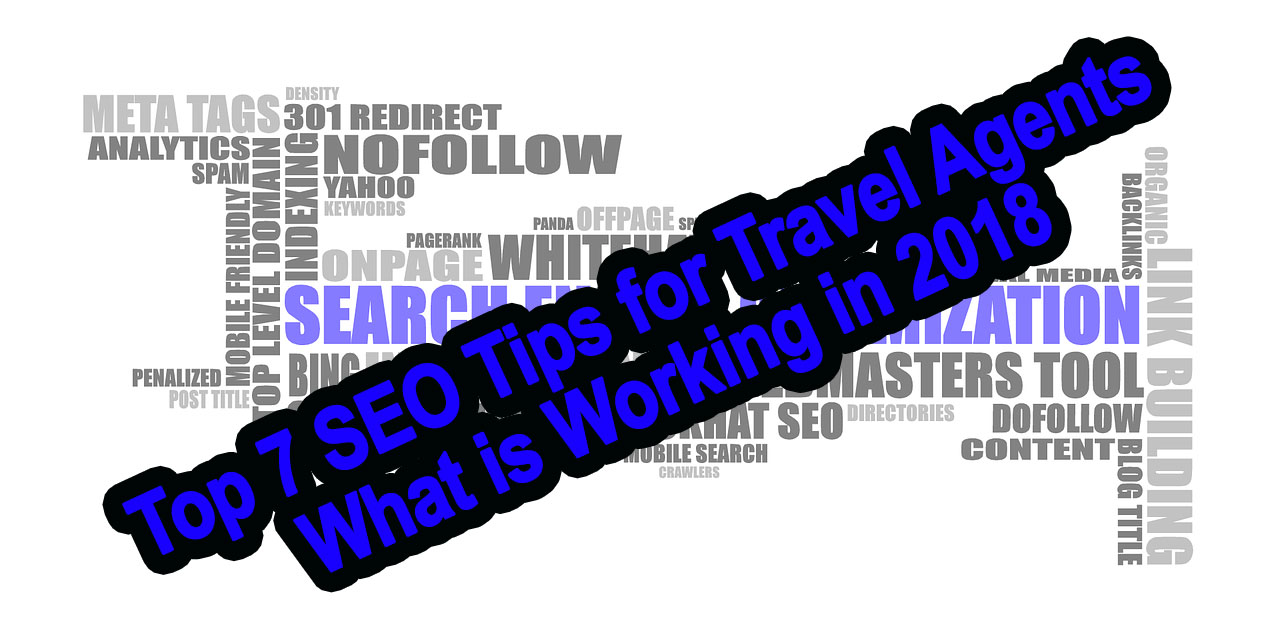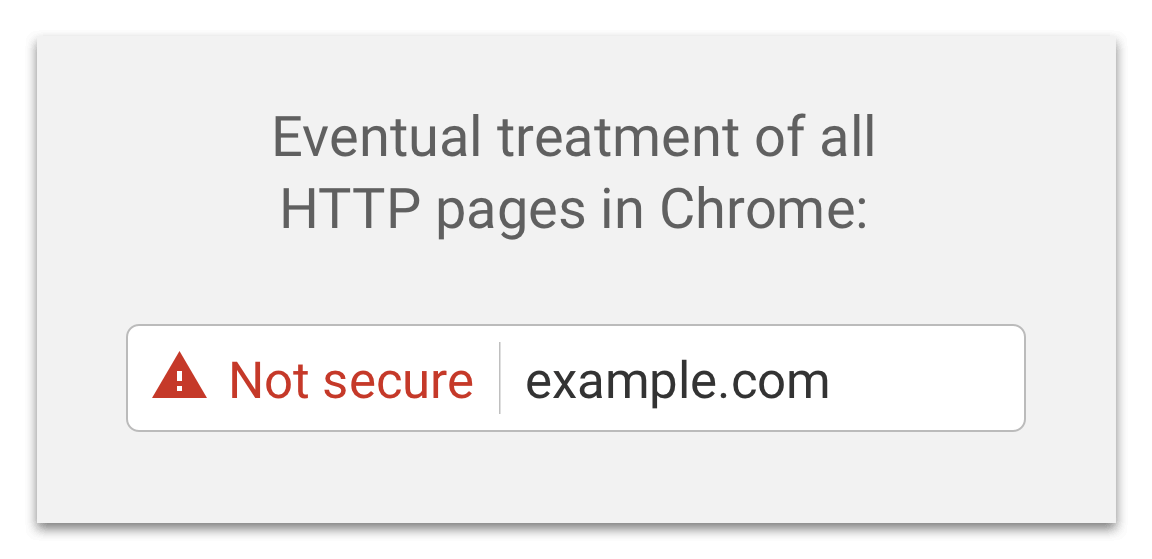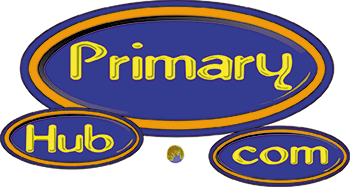Top 7 SEO Tips for Travel Agents
Travel Sellers Mastermind Group
/
Mickey Smith
/
January 30, 2018

What is working in 2018
1. Content is (still) King
The content of a site still matters in 2018. Google is still concerned most with putting the correct content in the results of a given search (and it always will). If you are trying to “trick” Google into displaying your content when it shouldn’t, then you are playing the wrong game. For example, unless you have Bruno Mars as celebrity focus of your Cruise, you don’t want people hitting your site when they search for him. It might seem like a good idea to get that much traffic, but they would be gone in three seconds anyway…which is called a “bounce”. If you get too many bounces, and Google will demote your search anyway. The important thing is to add the content that you do want.
Generate targeted content:
If you sell a particular kind of travel, Let’s say “All Inclusive Caribbean Vacations”, then it is time to start writing about it.
Post Optimized Images:
When you post a picture from the FAM trip you went on, your image is likely named something like “qwklejqlwjeqil2323.jpg”, take the 5 seconds before you upload it and name it “SandalsMontegoBayInJanuary.jpg” and then tag it in your back end.
Is it OK to Put Marketing Language Into My Post?
While it is a best practice to put the search term in order in your post/page/article, etc, you will be penalized if you use the words too many times AND it doesn’t make sense to the human reader. Make sure your content is organic. CONTENT MUST BE ORGANIC. Organic content is the mostly organic way you can organically develop your words into organic content. <<Note: This was an example of what NOT to do>> It sort of fell apart after the sentence “Make sure your content is organic.” Don’t overload your content or you are wasting your time.
How can I get ideas for content?
Write all the time. When you put an email together with an itinerary for a client (or you just join it with software), before you hit send, look at it. If it is great, then your writing might be done for the week. Copy that thing into a document and start a post called “What to look forward to on your trip to….”. Any time a client has a question, write it on your journal. It is great content. If one person is asking you, then 10,000 are asking Google the same thing. “How do I get a wedding cake for my wedding in Antigua?” Make a short article and post it. Other people want to know too. This is how you can get an exponential benefit for that work you were doing anyway. Stop hating it when clients ask too many questions…from now on, think of it as a free content calendar for your SEO friendly content.
2. Site Setup
HTTPS over HTTP:
Google Chrome is now penalizing sites for not being “HTTPS”. If your site is still “HTTP” only, then Google can (and already may be) listing your site as “unsafe”. HTTPS is something that is standard now, and it doesn’t need to cost an arm and a leg. The SSL certificate that makes it HTTPS can now be obtained for free, all you have to do is pay for your web company to set it up for you.

Robots.txt, htaccess, using SEO plugins:
Sometimes you can have the best of intentions, but overkill in optimization can be bad if your programming “collides”. In other words, make sure that you didn’t just add something to your SEO plan that actually hurts you.
The best way to do this is to pre-test for your results:
Test it before adding your new plug in or making a change by looking at a program like Statcounter.com or your Google Analytics. That will tell you how people are finding you. Look at your results for those words by:
A. Open an incognito window in chrome (incognito forces Google to show you raw results – with no cookies from your previous search results).
B. Now open Google and search (it is a good idea to set your search results to 100 per page…under settings).
C. Now with the top 100 results showing, hit and put your domain name in the “page search (top right)” and hit .
D. This will give you an idea of where you are before you make any changes.
E. Re-run this again four days to a week after to be sure that what you just did didn’t hurt your rankings
3. Links Still Connect
If you are linking off page, and pages are linking back, this is almost always good unless you are on a site that is a known “SEO Web Ring”, and as such is penalized by Google. Years ago, you could just post your site on one of these, and you would be instantly listed in the search engines, because they were so highly optimized. Now you will be listed as well…blacklisted. Most people take this way too far though. It is still great to have links going in and out.
By the way, your Facebook page, LinkedIn, Twitter, WordPress blog, etc are all acceptable places to put your website link. You probably set it up that way in the first place. The thing is, did you set it up so that every page and every post also has your targeted links? Be sure to add them.
4. Mobile Responsiveness
StatCounter.com is a great place to start to instantly see how much of your traffic is coming from phones. If you don’t already know this number, I bet you will be shocked. Most of your people are likely reading your site on the small small screen.
Are you set up for it? How does your site look on a phone? This is called a site’s “responsiveness”. If your site looks like garbage on a phone, then in all probability, you are probably missing between 40-60% of your action. It is just going out the window as your potential clients look for sites that they can find good easy to navigate and read info.

5. Landing Pages
H2 + H1 Heading Tags:
Your page likely has H1 tags on it. These are the big words on your website like your page titles. The key though is that if your pages with H1 tags also have H2 tags, you will (theoretically) get ranked higher.
Your sub-headings and secondary titles can gain you a lot of traffic if they are used sparingly to set off your important data and make it easier for the search engines to figure out what it is that is on your page. Again – you should not abuse this by having tons of secondary titles on your page, or worse, having all of your page content in H2 tags. That won’t work.
Interstitial Penalty:
An interstitial is something that pops up and covers all content, or a forward
that moves you to another page as soon as it opens. While there can be ways
around the penalties, the problem again is your mobile users. If your mobile
user-base (or any giant group of searchers) isn’t getting the page they came
for, then you will get penalized. Or even blacklisted.
6. “Tag” Pages and “Category” Pages
Did you know that there are different kinds of pages you can put out that will act different ways with the search engines? You can play with your results from these. Try setting up pages that are dedicated to “tags” or “categories”.
If you have a WordPress website, this is a great way to increase your traffic, because Google will point traffic to them in different ways than your standard content page. Every site is, however different in how this works, so you will have to play with it and test the results to see what is possible with your website. We have been able to do some amazing things with this feature and put some of our clients on almost all result pages for specific niches…which brings us to #7.
7. Niche-Specific Content
There are at least three specific niches for every kind of travel package. Are you using them to your advantage? If you know what they are, then you already think link a web marketer.
They are…WHERE, HOW, and WHO. If you are trying to sell an affinity cruise for a Christian recording artist, then you are selling: Caribbean, Cruise, and Christians (you can get way more specific here…people who listen to Christian radio, watch YouTube videos, read Worship articles). If you are selling all-inclusive destination weddings in Jamaica, then well, it kind of writes itself doesn’t it.
Make sure you are thinking like a marketer. When anyone can identify what it is that is specifically available, they can recommend it to friends who need it. This is the same principle that the search engines all work under. Take advantage of it.
BONUS: You can optimize ANYTHING these days
Did you know that you can optimize everything from a Facebook Group to a twitter post? Everything in between has some kind of optimization. As a test, in 2002, one of the guys from our optimization team posted his image gallery from his honeymoon and totally optimized every image. Our team optimized the gallery itself. Here is the kick, it still showed up last year until we replaced the site with our new website, and didn’t repost his gallery. If you optimize something, it will benefit you. If you can figure out how to link it with others and make it a center of attention, then all the better.
What works these days?
Working together. It is way easier to set up a group and successfully book it if you have like minded agents who will work with you to make it happen.
We are going to the best Travel Show on the planet. I would love it if we could all meet you in person there.
Find us at the TravelAgentForum 2018 Event
Paris Hotel and Casino
April 8-11, 2018
Click here for registration information
#TravelAgentForum
Jump into the conversation:
Post any marketing question in the comments section below. We may just make a whole article on it.



Recent Comments